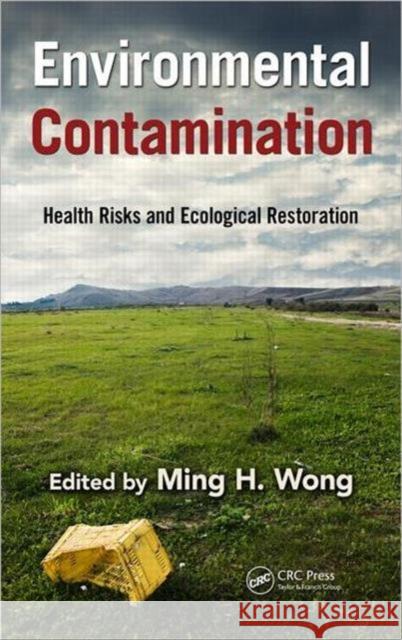Environmental Contamination: Health Risks and Ecological Restoration » książka
Environmental Contamination: Health Risks and Ecological Restoration
ISBN-13: 9781439892381 / Angielski / Twarda / 2012 / 518 str.
Environmental Contamination: Health Risks and Ecological Restoration
ISBN-13: 9781439892381 / Angielski / Twarda / 2012 / 518 str.
(netto: 884,45 VAT: 5%)
Najniższa cena z 30 dni: 856,36
ok. 16-18 dni roboczych.
Darmowa dostawa!
Bringing together the research of 62 distinguished scientists in one volume, Environmental Contamination: Health Risks and Ecological Restoration offers a comprehensive view of the remediation of contaminated land. A one-stop resource, it covers historical and emerging contaminants, the issues of bioavailability of chemicals and their associated human health risks, and the latest remediation technologies. The book also contains numerous case studies, many of them drawn from the Asia-Pacific region, that look at the effects of rapid industrialization. The chapters are inspired by presentations and discussions held during the 2010 Croucher Advanced Study Institute workshop, entitled Remediation of Contaminated Land Bioavailability and Health Risk. With the speed and scale of recent socioeconomic development, particularly in regions with less stringent environmental regulations, it is evident that various industrial activities have given rise to tremendous environmental degradation and severe health problems. The book begins with a description of current problems and future trends of pollutants, as well as their impact on the environment and human health. It then focuses on emerging contaminants, such as flame retardants and electronic waste. The book also examines research on environmentally friendly and sustainable solutions to remediate contaminated lands, exploring cutting-edge bioremediation and phytoremediation technologies. Chapters discuss arsenic biomethylation, copper homeostasis, microbial transformation of phthalate esters, the potential function of paddy fields in phytoremediation, the use of constructed wetlands for pollution control, phytostabilization of arsenic-contaminated sites, and more. This timely book provides readers with a highly focused reference on some of the most urgent environmental and health issues and research topics. These include e-waste recycling and arsenic and heavy metal contamination of rice issues that are relevant for many countries around the world."











